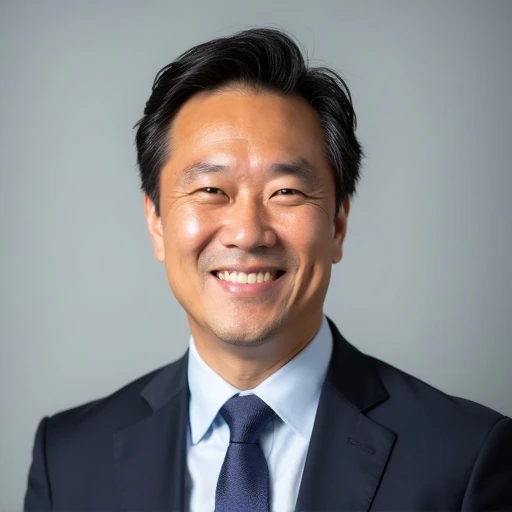TED, the organization globally recognized for its influential conferences on Technology, Entertainment, and Design, is undergoing a significant strategic transformation. The company is moving beyond its roots as a host of exclusive events to establish itself as a major force in the educational technology sector, aiming to broaden its impact on global learning.
Key Takeaways
- TED is expanding its mission, shifting resources from high-profile conferences to digital education initiatives.
- The organization is building on the success of its TED-Ed platform to develop new learning tools and content.
- This strategic change reflects a broader trend in the digital content industry toward scalable, accessible educational products.
- The move aims to make TED's curated knowledge available to a wider, more diverse global audience beyond event attendees.
From an Exclusive Stage to a Global Classroom
Since its inception in 1984, the same year Apple introduced the Macintosh computer, TED has cultivated a reputation for hosting elite, thought-provoking conferences. These events brought together influential figures to share "ideas worth spreading" in a concise, powerful format. While the conferences were exclusive, the decision to post talks online for free catapulted the brand to international fame.
This digital success laid the groundwork for the current evolution. The organization recognized that its greatest potential for impact was not in a physical auditorium but through scalable digital platforms. The new strategy represents a deliberate pivot from a business model centered on high-ticket events to one focused on creating accessible educational resources for learners of all ages worldwide.
A Brief History of TED
Founded by Richard Saul Wurman, the first TED conference was held in Monterey, California. It initially lost money and was not held again for six years. However, by the 1990s, it had become a highly anticipated annual event. In 2001, the conference was acquired by Chris Anderson through his non-profit Sapling Foundation, which later became the TED Foundation. This marked the beginning of its transition toward a more open, global mission.
The Rise of Educational Technology
The global educational technology, or "ed-tech," market has experienced explosive growth, a trend accelerated by the increasing demand for remote and flexible learning options. This sector encompasses a wide range of digital tools, from online course platforms to interactive learning apps and virtual reality classrooms. The market is projected to be worth hundreds of billions of dollars, making it an attractive area for expansion.
TED's move is a strategic response to this market shift. Rather than competing solely as a media company, it is repositioning itself as an educational institution. This involves leveraging its vast library of expert talks and its powerful brand recognition to create structured learning experiences. The focus is on quality, curated content that can supplement traditional education or provide standalone learning opportunities.
Market Growth Statistics
According to industry analysts, the global ed-tech market is expected to grow significantly over the next decade. Some reports project a compound annual growth rate (CAGR) of over 15%, driven by advancements in artificial intelligence, increased internet penetration, and a growing acceptance of online learning models in formal education systems.
Expanding the TED-Ed Initiative
At the heart of this new direction is the expansion of TED-Ed, the organization's youth and education arm. Launched in 2012, TED-Ed has already achieved significant success with its library of animated educational videos and its platform for creating customized lessons.
New Tools for Educators and Students
The next phase of development involves creating more sophisticated tools for both educators and independent learners. These plans include:
- Interactive Courses: Developing full-length courses on various subjects, built around core TED Talks and supplemented with quizzes, projects, and collaborative discussions.
- Personalized Learning Paths: Using technology to create customized learning journeys for students based on their interests and knowledge gaps.
- Teacher Resources: Providing educators with comprehensive lesson plans, classroom activities, and professional development materials integrated with TED content.
This expansion aims to move beyond passive video consumption and foster active, engaged learning. The goal is to create a comprehensive ecosystem that supports learners from primary school through lifelong education.
"Our mission has always been about the power of ideas," a company spokesperson noted. "This evolution is about making those ideas more than just inspiring—it's about making them foundational to education everywhere."
Challenges and Opportunities in a Crowded Market
While TED's brand is a powerful asset, the ed-tech landscape is highly competitive. The company will be competing with established online learning platforms like Coursera and Khan Academy, as well as a multitude of specialized startups. To succeed, TED must differentiate its offerings and prove their educational value.
The primary opportunity lies in its unique content library. No other platform has such a diverse collection of talks from leading experts across so many fields. By structuring this content into effective learning modules, TED can offer a unique proposition that combines inspiration with rigorous instruction.
Furthermore, the organization's non-profit status could be an advantage. It allows TED to prioritize educational impact over shareholder returns, potentially fostering greater trust among educators and parents. The challenge will be to develop a sustainable financial model for these new initiatives while keeping much of the content accessible and affordable.
The Future of "Ideas Worth Spreading"
This strategic shift signals a new chapter for TED. While the iconic conferences will likely continue in some form, they will no longer be the company's central focus. Instead, they will serve as a content engine for a much larger, more ambitious educational mission.
The success of this pivot will depend on TED's ability to translate its talent for curating powerful talks into creating effective educational experiences. If successful, the organization could redefine its legacy, moving from a platform for the elite to a fundamental resource for learners around the world, truly embodying the spirit of "ideas worth spreading."





